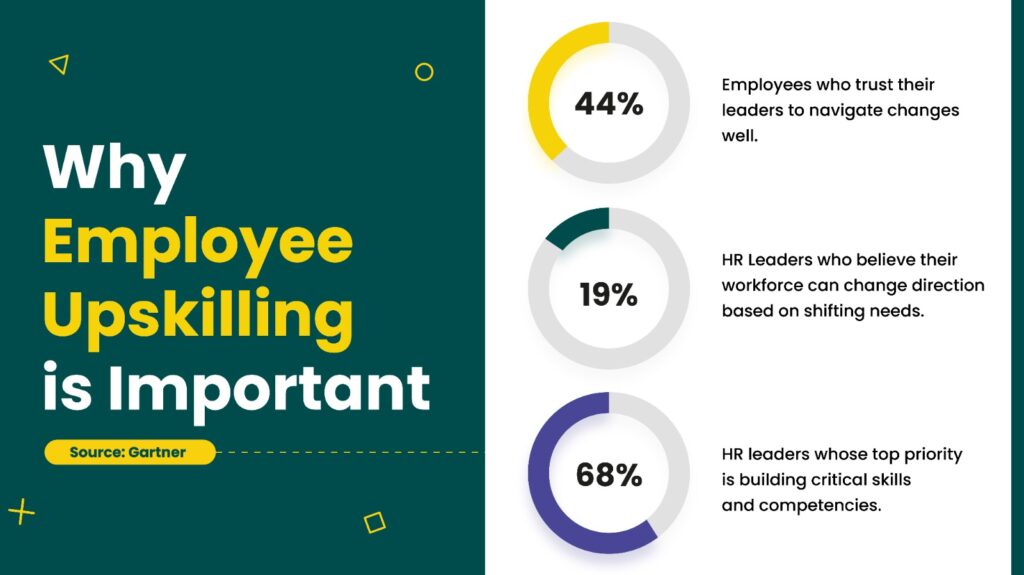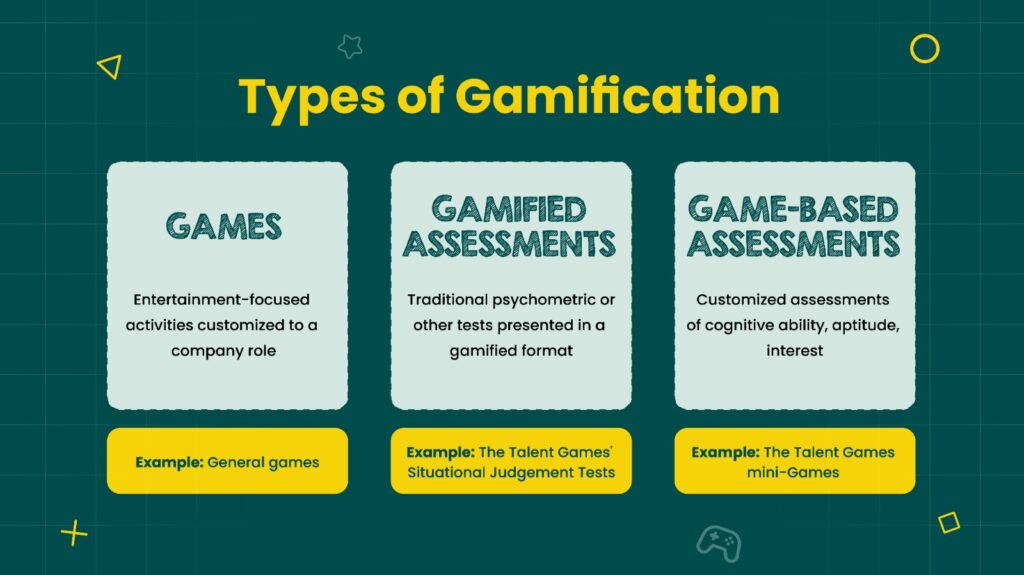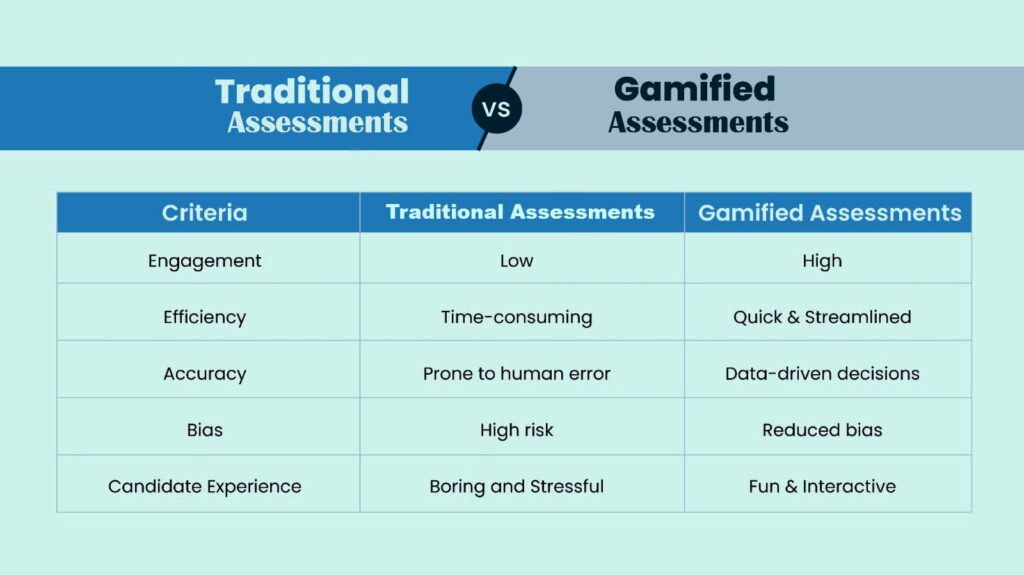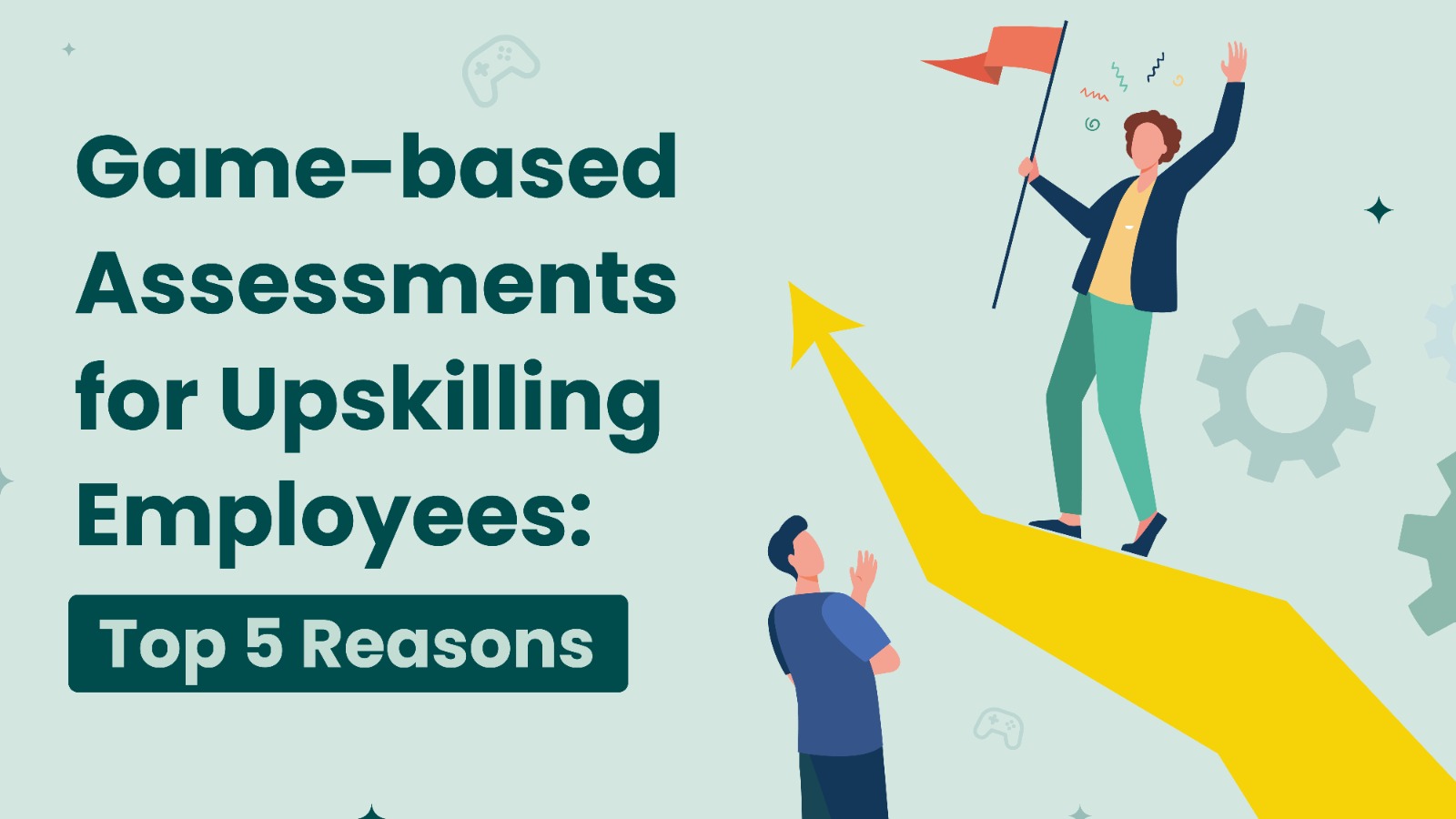Learn how gamified or game-based assessments for upskilling employees can give your business a competitive edge. This blog highlights five powerful reasons why they’re the key talent management trend in today’s fast-paced market.
Why do traditional employee training programs often fall short? Many companies struggle to keep their learning and development (L&D) programs engaging and effective.
Employees today aren’t just looking for check-the-box training; they want interactive, personalized learning that helps them grow and perform better.
In fact, according to research, L&D has shifted from being a ‘nice-to-have’ to a business-critical necessity. Learning and development is one of the best areas for investment for organizations in order to boost productivity.
But how do you make L&D more impactful and engaging?
This is where game-based assessments for upskilling come into the picture. These innovative tools combine fun and competition with learning, transforming the traditional training experience into something employees actually look forward to.
So, what exactly is upskilling, and how do game-based assessments play a role in enhancing it? Let’s explore how they work and why they’re redefining modern workforce development.

What Are Game-Based Assessments?
Game-based assessments (GBAs) are innovative tools that blend the mechanics of gaming with the principles of psychometric evaluation.
Unlike traditional assessments that rely on multiple-choice questions or interviews, GBAs immerse candidates or employees in virtual environments where they need to solve problems, make decisions, or demonstrate certain behaviors.
These assessments are more than just fun—they’re highly effective because they engage participants in real-world scenarios that test both hard and soft skills.
The beauty of GBAs lies in their ability to gather objective, data-driven insights about a person’s skills, behaviors, and potential.
And because participants are actively involved in the process, it eliminates the biases often associated with conventional methods like interviews.
Types of Gamification for Upskilling Employees
Understanding the different types of gamification is essential so you don’t get confused by the terms or use them interchangeably. Each type serves a unique purpose, and selecting the right one is crucial for aligning your learning and development strategies with your organizational goals.

C-Factor by The Talent Games:
Unlike gamified assessments, which are often based on pre-existing psychometric tests, game-based assessments are specifically designed for recruitment purposes.
One standout example is The Talent Games’ proprietary C-Factor model. This game-based assessment system evaluates behavioral competencies, cognitive abilities, and aptitude through a combination of cognitive tests, situational judgment tests (SJTs), and mini-games.
The C-Factor model was tested and validated during the recruitment process for a Management Trainee program at a major bank in Asia.
Results showed that it had the strongest predictive accuracy of job performance when paired with a structured interview—outperforming traditional assessments (Saddiq & Humayun). This makes C-Factor an ideal tool for identifying top talent in a highly engaging and scientifically-backed way.
Modernizing Talent Development with Gamified Assessments
Game-based assessments aren’t just transforming how companies hire; they’re also revolutionizing talent development.
Traditional assessments can feel mechanical, but game-based assessments engage participants on a much deeper level.
This results in higher retention rates of information and skills learned, as well as more accurate assessments of capabilities.
In fact, by making assessments more interactive and removing human biases from the process, companies are finding it easier to identify high-potential employees, leading to better decision-making in talent development programs.
Plus, employees feel a greater sense of fairness and inclusivity, knowing their performance is being assessed in an objective, game-like setting.

What Is Upskilling and Why Do Companies Need It?
Upskilling refers to the process of teaching employees new skills to fill the gaps created by evolving business needs, technologies, and market dynamics.
As companies face rapid changes, upskilling has become critical in ensuring employees stay relevant and competitive in their roles. As per Workplace Learning Report, 87% of Learning and Development professional say they can show business value by helping employees gain skills to move into different internal roles.
Instead of replacing existing staff with external talent, organizations can develop their current workforce to take on new challenges and responsibilities, reducing turnover and boosting loyalty.

The need for upskilling is more pressing now than ever before. According to research, over 50% of the global workforce will need to learn new skills to keep up with changing job demands by 2025.
Whether it’s the adoption of new technology or the shifting expectations in leadership, companies that fail to upskill their teams risk falling behind their competitors.
Upskilling also enhances employee satisfaction by giving them opportunities for personal and professional growth, which is vital for retention and engagement.
5 Reasons to Use Game-Based Assessments for Upskilling Employees
Gamified assessments can be useful tool to assess the existing skill-set of the employees and provide with accurate stats to the managers.
These can be in form of psychometric games or even situational judgement tests. Here are the key reasons you should employ gamification to upskill your workforce.
1. Engage Employees Like Never Before
Employees are more likely to retain information when they’re actively participating in the learning process. Game-based assessments create immersive learning environments that are more interactive and engaging than traditional methods.
While 78% of business leaders claim to prioritize engagement, less than half of employees believe their leadership is “high quality” (Gallup). This highlights the need for gamified assessments, as they drive the high engagement that’s critical for closing this gap.
2. Data-Driven Insights for Better Skill Development
Game-based assessments provide objective measurements of employee performance, skills, and potential. By removing human biases, these tools ensure that every employee gets a fair shot at demonstrating their abilities.
The data-driven feedback allows companies to create personalized development plans based on real performance metrics. This helps employees understand their strengths and weaknesses too.
3. Boost Learning Retention and Application
Traditional assessments may teach employees the basics, but game-based assessments test their ability to apply knowledge in real-world situations.
This approach helps employees remember and use what they’ve learned, resulting in a more profound, long-term impact on performance.
Learning by doing ensures that employees are not just passively absorbing information but actively applying it in ways that mirror their work.
4. Provide Continuous, Real-Time Feedback
With game-based assessments, employees receive instant feedback on their performance. This allows them to understand their strengths and areas for improvement right away, fostering a culture of continuous learning.
Real-time feedback is essential for quick adjustments and helps employees feel more motivated to improve, knowing exactly where they stand.
5. Create a Collaborative, Inclusive Environment
Game-based assessments often incorporate elements of teamwork and collaboration, which encourage employees to work together and support each other’s growth.
The game format also levels the playing field, ensuring that all employees—regardless of background or previous experiences—have an equal opportunity to showcase their skills. This makes the learning and development process more inclusive and rewarding for everyone involved.
Conclusion:
Game-based assessments offer a dynamic and engaging way to upskill employees, blending fun with real-world scenarios to sharpen their competencies and boost your employer brand.
As companies strive to stay competitive in terms of having the top candidates, traditional dull methods of training and development may no longer be enough.
By incorporating game-based assessments, you not only improve learning outcomes but also create a bias-free, immersive experience that enhances productivity.
It’s time to rethink employee development—because upskilling is no longer a luxury; it’s a necessity.
